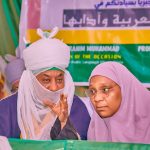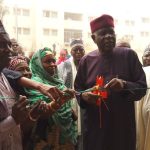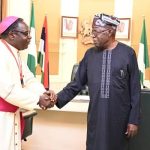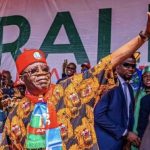The Nigerian government has demanded that the social media platform X remove a post by Omoyele Sowore, the activist and publisher known for his relentless criticism of those in power, warning that failure to comply could trigger sweeping reprisals.
In a letter dated Saturday and addressed to Elon Musk’s X Corp., the Department of State Services, Nigeria’s domestic intelligence agency, said that Sowore’s late-night post on Aug. 25 disparaged President Bola Ahmed Tinubu and posed what it called a risk to national security.
The letter, signed by the agency’s director-general, B. Bamigboye, was later shared publicly by the DSS itself.
“This criminal @officialABAT actually went to Brazil to state that there is NO MORE corruption under his regime in Nigeria. What audacity to lie shamelessly!” Sowore wrote, tagging the president’s official account.
The government contends that the post amounts to the dissemination of false information, online harassment and hate speech, claiming it had already stirred unrest among Tinubu’s supporters. Officials warned that such remarks could tarnish Nigeria’s international standing and undermine stability at home.
Citing multiple statutes — including Section 51 of the Criminal Code, provisions of the Cyber Crimes Act and even the Terrorism Prevention and Prohibition Act — the DSS suggested that Sowore’s comments could be construed as a form of domestic terrorism, potentially exposing both him and X Corp. to criminal liability.
X was given 24 hours to delete the post and any retweets. Otherwise, the agency warned, Nigerian authorities would impose “far-reaching, sweeping and across-the-board measures.” It did not specify what those measures might be.
The demand underscores the Tinubu administration’s increasingly fraught relationship with online critics and raises fresh questions about the boundaries of free expression in Africa’s most populous democracy.
Sowore, who has long wielded his online presence as a weapon against government excesses, has faced repeated arrests, charges and threats from Nigerian authorities. His latest clash with the DSS is likely to deepen concerns among rights advocates about the shrinking space for dissent in Nigeria’s public life.






